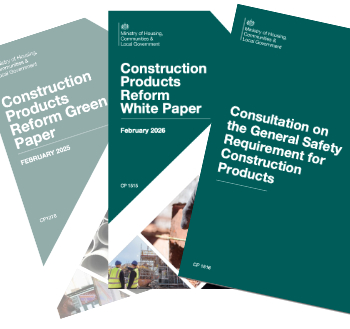Reasonable objection
[edit] Introduction
A reasonable objection to a state of affairs is to object to or refuse to agree to carry out a particular task under instructions or an order – and having valid reasons for doing so. For example, a person may object to being ordered to fight for their country on the grounds of being a pacifist.
[edit] Construction
In construction, risks abound and, in many cases, it is the contractor who has to shoulder them. Typically, contractors face risks such as:
- Unknown or unknowable ground conditions.
- Delays not requiring an extension of time, e.g weather-related.
- Responsibilities for surveying previous work or existing structures.
- The construction process generally.
- Major variations.
- The work of consultants subcontractors and suppliers.
This is why some contracts and sub-contracts (such as JCT contracts) can, in certain circumstances, allow the contractor / subcontracator to raise an objection, such as to a variation order, if they have reasonable grounds.
A typical example might be where the client (employer) selects a sub-contractor with particular expertise, while leaving responsibility for their performance with the main contractor. Where the selected subcontractor was not pre-named in the contract (and is therefore now post-named) the contractor is able to raise reasonable objection within a certain time limit (often 7 days).
The grounds upon which a contractor may raise reasonable objection include:
- The specialist has a poor safety record.
- There are reasonable grounds for believing that the specialist may not be financially secure, solvent, reliable or technically competent.
- The tender sum is not believed to be financially viable.
- The programme is deemed to be unreasonable.
In the past, substantial variations that have changed the identity of the contract or even negated it completely have given contractors the right to reasonable objection, if an additional sum for the works could not be agreed on. However, this may no longer be as certain to succeed, thanks to a legal precedent from the 1990s.
In McAlpine Humberoak Limited v McDermott International, [1992] it was established that even in a situation where the extra works involved substantial changes, they did not necessarily alter or transform the identity of the contract. Therefore, the contractor (in this case for an offshore installation) was bound to the original contract and the objection overruled.
The 2016 JCT Standard Building Contract Without Quantities, clause 5.1.2, made clear that the right of reasonable objection relates to employers making changes to:
- Site access.
- Limitations on working space.
- Limitations on working hours.
- Changes to the specific order of the works.
Clause 5.1.1, made clear that the following allow a right of reasonable objection:
- Changes to the design, quality or quantity of the works.
- Changes to the kind or standard of materials or goods.
- Removal from the site of work or materials that are not defective.
[edit] Related articles on Designing Buildings Wiki
Featured articles and news
The need for a National construction careers campaign
Highlighted by CIOB to cut unemployment, reduce skills gap and deliver on housing and infrastructure ambitions.
AI-Driven automation; reducing time, enhancing compliance
Sustainability; not just compliance but rethinking design, material selection, and the supply chains to support them.
Climate Resilience and Adaptation In the Built Environment
New CIOB Technical Information Sheet by Colin Booth, Professor of Smart and Sustainable Infrastructure.
Turning Enquiries into Profitable Construction Projects
Founder of Develop Coaching and author of Building Your Future; Greg Wilkes shares his insights.
IHBC Signpost: Poetry from concrete
Scotland’s fascinating historic concrete and brutalist architecture with the Engine Shed.
Demonstrating that apprenticeships work for business, people and Scotland’s economy.
Scottish parents prioritise construction and apprenticeships
CIOB data released for Scottish Apprenticeship Week shows construction as top potential career path.
From a Green to a White Paper and the proposal of a General Safety Requirement for construction products.
Creativity, conservation and craft at Barley Studio. Book review.
The challenge as PFI agreements come to an end
How construction deals with inherited assets built under long-term contracts.
Skills plan for engineering and building services
Comprehensive industry report highlights persistent skills challenges across the sector.
Choosing the right design team for a D&B Contract
An architect explains the nature and needs of working within this common procurement route.
Statement from the Interim Chief Construction Advisor
Thouria Istephan; Architect and inquiry panel member outlines ongoing work, priorities and next steps.
The 2025 draft NPPF in brief with indicative responses
Local verses National and suitable verses sustainable: Consultation open for just over one week.
Increased vigilance on VAT Domestic Reverse Charge
HMRC bearing down with increasing force on construction consultant says.
Call for greater recognition of professional standards
Chartered bodies representing more than 1.5 million individuals have written to the UK Government.





















